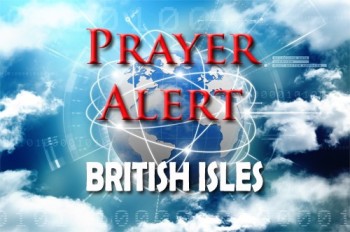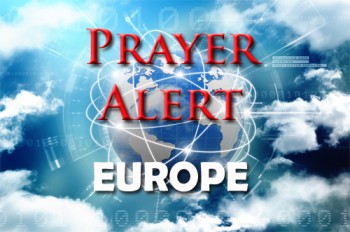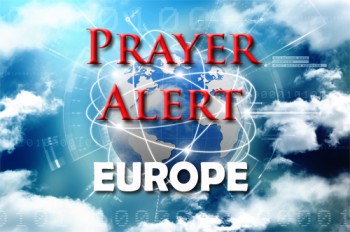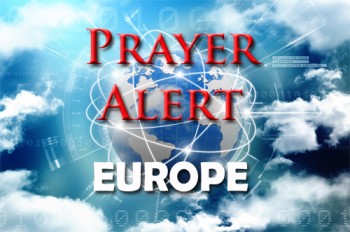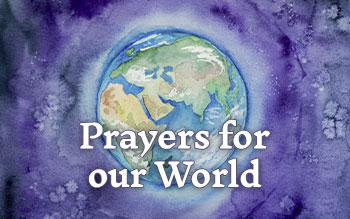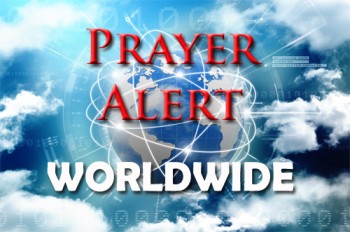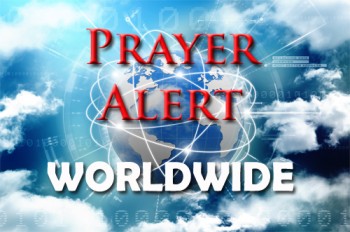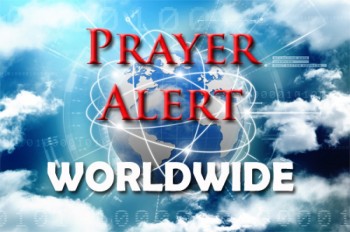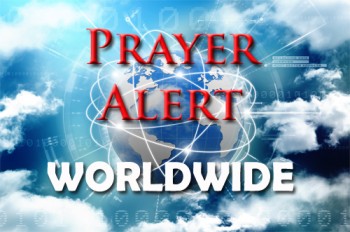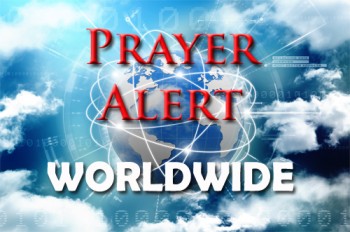Displaying items by tag: demonstrations
100,000 people are impossible to ignore.
NGOs, unions, and charities are joining with Extinction Rebellion for ‘The Big One’ from 21 to 24 April, when thousands will descend on Parliament. Greenpeace, Friends of the Earth, Earth Day. NHS, Workers Say No, Greener Practice, Global Justice Now, Black Lives Matter, CND, and various trade unions will take part in The Big One, stating, ‘Ordinary people are ready to create a fairer, safer, better world. Politicians don’t recognise people’s needs or listen to millions striking for better pay. They refuse to tackle the climate and ecological crisis, or prioritise people’s poverty in the cost of living crisis over energy company profits. It’s up to us to change society by putting care for people and nature at the forefront. It is possible to rediscover our collective power and change the course of history together. To make this a reality, this moment calls for a mass movement to stand together and become impossible to ignore.’
France: Covid deadlines and demos
French healthcare workers now face suspension if they are not vaccinated against Covid-19. The demand affects all medical professionals and those working with vulnerable people (including nursing homes' non-medical staff). 86% of healthcare workers are fully inoculated, suggesting many are risking sanctions. Also a phased roll-out of a Covid pass has been introduced - attesting its holder had either been vaccinated, tested negative or recently recovered from Covid - to visit cultural and leisure venues, bars, restaurants, large events or use long-distance public transport. On 14 September 'Infringement of freedom' protests were held in Paris over these rules. Over 9,000 Covid-related hospitalisations did not deter protesters, whilst others showed up to vent their overall frustration with the tenure of President Emmanuel Macron. Over last weekend, in Paris alone, three different Covid-related demonstrations took place. See
Russia: protesters receive harsh show of force
Protesters throughout Russia gathered on two consecutive weekends to support jailed opposition leader Alexey Navalny, who accused President Putin of poisoning him with Novichok. Over 5,000 were detained, including Navalny's wife who was later released. The organised protests started at noon in 120 cities. Riot police in heavy-duty uniforms attacked the streets full of protesters. They closed subway stops and cut short bus routes to prevent demonstrators gathering. Protesters shouted, ‘Let him go!’ and ‘Russia without Putin!’ Putin’s ratings have hit historic lows over declining incomes, diminishing freedoms, and poor handling of the pandemic. The following week Navalny was sentenced to nearly three years in a prison colony for violating the terms of his probation while he was recuperating in Germany from nerve-agent poisoning. The UK foreign secretary said the perverse ruling targeted the victim of a poisoning rather than those responsible. Russia is failing to meet the most basic commitments expected of any international community member. See
Germany: far-right protesters storm parliament building
Germany’s lockdown measures and Covid-19 restrictions provoked a protest march by around 38,000 people. Hundreds of demonstrators breached a security barrier and raced up the steps outside Berlin's parliament building. They were dispersed by police with pepper spray. Some of them held the flag of former imperial Germany, which is used by the Reichsbürger far-right group. President Steinmeier said the use of Reich flags and right-wing provocations was 'an unbearable attack on the heart of our democracy’. He said people had the right to express their anger about the restrictions and to question them publicly, including demonstrations, but his sympathy ends when protesters allow themselves to be used by enemies of democracy and political agitators. Police arrested about 300 people. Pray that Nazi imperial war flags that recall the darkest period in Germany history will be prevented from ever flying again.
Iran: Protests Over Lack Of Plane Accountability
Only days after large crowds of Iranians demonstrated national unity while mourning the assassination of the country's top military leader in a U.S. drone strike, anti-government protests have erupted on the streets of Tehran and several other cities.
The protesters are angry over the establishment's mishandling of the deadly downing of a Ukrainian passenger jet on January 8 by the Islamic Revolutionary Guards Corps (IRGC) in what is seen as a display of incompetency and recklessness by the country's leaders.
Thousands of protesters, including many students, chanted against the clerical establishment over the weekend and into January 13, with many calling for the resignation of the country's top authority, Ayatollah Ali Khamenei.
"Clerics get lost" was one refrain heard at the protests. Others called Qasem Soleimani, the IRGC commander killed in the U.S. strike and widely praised as a national hero by the state, "a murderer."
It was Iran's delayed admission of guilt for the plane's downing -- three days after the tragedy -- and what was seen by many as an attempt to cover up the real cause of the crash that has aroused public fury and a revival of the grievances that resulted in waves of anti-establishment protests in past months, including in November, when hundreds were killed in a violent state crackdown on rallies against large increases in gas prices.
In the past two days there have been photos and video from the protests showing wounded people being carried away and blood on the ground. In some videos, gunshots can be heard and tear gas is being fired, although the police have denied shooting at protesters.
U.S. President Donald Trump tweeted to Iranian leaders: "Don't kill your protesters."
The demonstrators in Tehran and cities including Isfahan, Shiraz, and Babol were also upset by what they see as a cover-up, including Iran's lack of cooperation with Ukrainian investigators and the bulldozing of the disaster site, which led to international ridicule.
The protests come amid a faltering economy due to crippling U.S. economic sanctions that have contributed to the fall of the national currency, the rial.
"We're seeing society bursting [in anger], particularly students, against lies and the humiliation of the nation," Paris-based Iranian analyst Reza Alijani told RFE/RL.
Mostafa Tajzadeh, an acting interior minister under reformist former President Mohammad Khatami, suggested he was also shocked over the level of deceit by the government. "I must admit I couldn't believe all the lies, secrecy, and deceit in the Islamic republic. Why and how did we reach this point?" he said on Twitter.
Speaking on January 13, government spokesman Ali Rabiei denied that the state concealed facts and misled the public, while acknowledging the public had lost trust in it. He noted the plane was downed just a few hours after Iran had fired more than a dozen ballistic missiles at two U.S. bases in retaliation for Soleimani's killing, and suggested the high tension between Washington and Tehran played a role.
"All armed forces were on high alert and this was the reason for the tragic mistake and the accident," Rabiei was quoted as saying by state media.
More at: https://www.rferl.org/a/anger-grows-in-iran-over-lack-of-accountability-in-ukrainian-plane-tragedy/30375053.html?ltflags=mailer
Pray for the Iranian people whose lives are affected both by the policies of their government and the effect of the harsh international sanctions.
Pray that Iran will adhere to the requests by the world community for it to stop funding terrorism and to adhere to the nuclear agreement and stop processing enriched weapons grade uranium.
Iran: 200+ killed, hundreds arrested
Iran's president Hassan Rouhani has called for the release of unarmed and innocent people arrested during the two weeks of protests in over 100 cities and towns after a 300% fuel price increase. The protests have now turned political as young and working-class protesters demand that religious leaders step down. Iran's leaders, blaming 'thugs' linked to the USA, Israel, and Saudi Arabia, have urged the country's judiciary to mete out harsh sentences to those involved in the demonstrations. Amnesty International reported at least 208 deaths on 2 December. Demonstrations and deaths have continued since then. Amnesty says that families of victims were threatened and warned not to speak to the media or hold funeral services. It added that the death toll is evidence that Iran's security forces went on a horrific killing spree, and urged the international community to help ensure accountability. See
Lebanon: demonstrations - PM resigns
Protesters have paralysed Lebanon, blocking roadways, closing schools and shutting banks nationwide. Emergency reform measures and an offer of dialogue with protest representatives by the president failed to defuse anger or move the cross-communal demonstrations of Christians, Muslims (Shia and Sunni), and Druze from the streets demanding the resignation of all Lebanese political leaders. On 29 October the prime minister, Saad Hariri, resigned. The protests over political corruption and economic turmoil began after now-scrapped plans to tax WhatsApp calls were introduced in mid-October. Lebanon has one of the highest debt levels in the world. Mr Hariri must stay on until a new administration is established, but parliament contains the same factions that are in the outgoing coalition. On 30 October demonstrators celebrated Hariri’s departure, but vowed to stay in the streets until all their demands are met. See
Hong Kong: migrants join protests
Demonstrations in Hong Kong have drawn in the youth, parents, first-time protesters and the church, while migrant workers have quietly and consistently participated since the beginning. Migrants distrust the Chinese justice system. In June a Chinese trawler rammed into a Filipino fishing vessel in the South China Sea (called the West Philippine Sea in the Philippines), over which China has claimed dominion. The Filipino boat’s 22-man crew ended up in the water, fearing for their lives, for hours as their vessel sank. They were ultimately rescued by Vietnamese sailors. Chinese officials downplayed the incident as an accident. Onlookers call it one of many dangerous disagreements where China has used its strength to strong-arm neighbouring nations, displaying unwanted authoritarian actions. One migrant said, ‘The moment you make your opposition to certain government policies known, you are treated like a threat to state security, and can be jailed for years.’
Hong Kong: Christians and demonstrations
Last week we praised God for the peaceful anti-extradition bill rallies in city streets. This week violent demonstrators stormed the legislative building in protest against the extradition bill. Many Christians feared for their lives in light of the now-suspended bill, due to China having some of the most restrictive religious freedom laws on earth. According to the law, religious assemblies in public areas are not deemed illegal, so if people sing hymns together, it could actually work as a protection and guarantee that they stay safe. But this week people started to sing ‘Sing hallelujah to the Lord’ to protect themselves in chaotic scenes of huge groups storming into government buildings, painting graffiti on the walls and even draping the front lectern in a British Hong Kong flag used during the colonial period. Amid the political turmoil, Hong Kong’s many Christian leaders have called for peace and progress. Pray for people with different positions and opinions to listen to each other.
Sudan: nine women sentenced to twenty lashes
President Bashir released all females detained for anti-government demonstrations on International Women's Day. The next day nine Sudanese women protesters were arrested and sentenced to twenty lashes plus a month in prison. In February Bashir declared a state of emergency and other measures including emergency courts across the country. The women were arrested for participating in a ‘banned demonstration’ in the capital's eastern district of Burri, a site of regular protests, and tried in one of the ‘emergency courts’. They are now in a women's prison in Omdurman. An appeal against the verdict was filed on 10 March. Protests against Bashir have happened almost daily across Sudan since 19 December. Pray for government leaders to rule with integrity and justice, and for peace and stability between tribal groups and military commanders who continue to vie for power.
